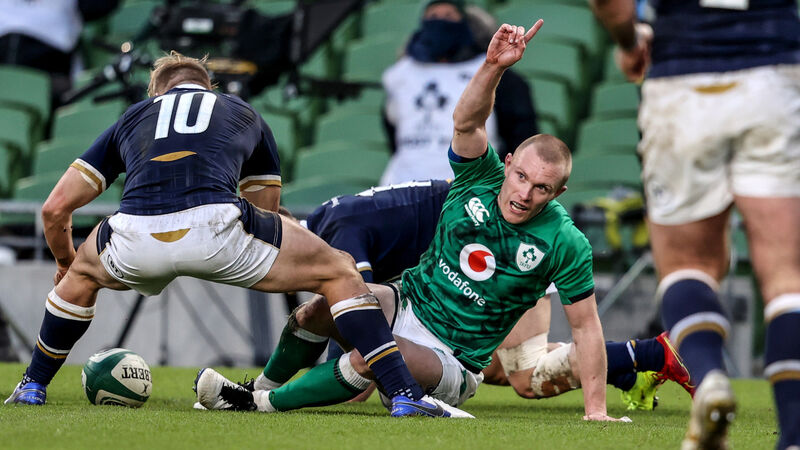Donal Lenihan: Evergreen Keith Earls remains a serious weapon for Munster and Ireland

Ireland's Keith Earls celebrates after scoring a try against Scotland. Picture: INPHO/Dan Sheridan
Spare a thought for the provincial coaches this week.
Try from €1.50 / week
SUBSCRIBE
Ireland's Keith Earls celebrates after scoring a try against Scotland. Picture: INPHO/Dan Sheridan
Spare a thought for the provincial coaches this week.
When the Heineken Cup was revamped back in 2014, the tweak that exercised the minds of the brains trust in Munster and Leinster in particular, given the numbers both supplied to the national squad, was the reduction in preparation time from three to two weeks between the finish of the Six Nations and the quarter-final of the newly-branded Heineken Champions Cup.
Already a subscriber? Sign in
You have reached your article limit.
Annual €130 €80
Best value
Monthly €12€6 / month
Introductory offers for new customers. Annual billed once for first year. Renews at €130. Monthly initial discount (first 3 months) billed monthly, then €12 a month. Ts&Cs apply.
Newsletter
Latest news from the world of sport, along with the best in opinion from our outstanding team of sports writers. and reporters
Friday, February 13, 2026 - 5:00 PM
Friday, February 13, 2026 - 5:00 PM
Friday, February 13, 2026 - 4:00 PM

Select your favourite newsletters and get the best of Irish Examiner delivered to your inbox
© Examiner Echo Group Limited